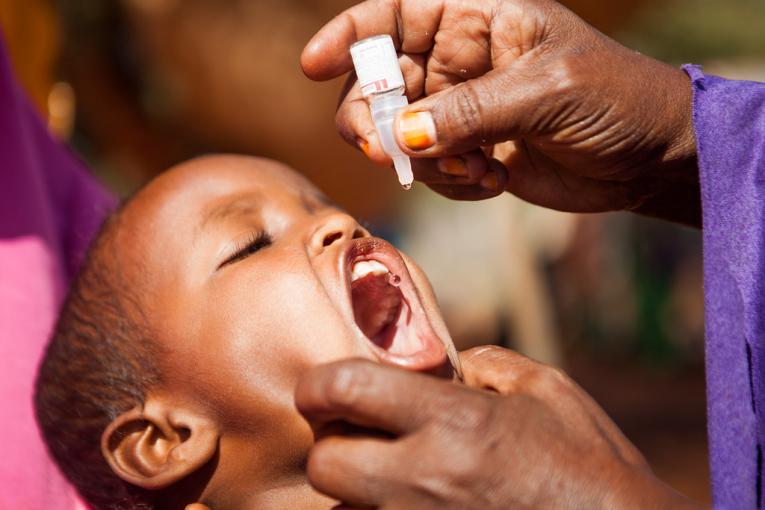Health
Many Nigerian children not immunised – Health Minister

Dr Osagie Ehanire, Minister of Health, has said that Nigeria was still struggling with high numbers of unimmunised children, with its maternal and under-five mortality rates worsening.
Ehanire made this disclosure at the Expanded Inter-Agency Coordination Committee (ICC), to review Nigeria Strategy on Immunisation and Primary Health Care System Strengthening, (NSIPSS), on Tuesday, in Abuja.
He said that the numbers of children not immunised were unacceptably high, with about two-third not accessing vaccines for preventable diseases like pneumonia, diarrhoea and measles.
The News Agency of Nigeria(NAN), reports that the meeting was the first high-level meeting led by GAVI Board and Alliance Gavi, since the NSIPPS accountability framework was put in place.
The minister recognised immunisation as a highly cost-effective way of reducing child mortality, adding that partnership with GAVI had critically scaled up coverage, to 80 per cent by 2018, to improve health indices and achieve SDG goals in the country.
He said that these targets may seem ambitious but were achievable, working with partners, including GAVI.
“In the past few years, immunisation and strengthening PHCs have been prioritised.
“The National Primary Health Care Development Agency (NPHCDA), established the National Emergency Routine Immunisation Coordination Committee (NERICC), with focus on 18 low-performing states and their local governments, as a platform for timely resolution of RI gaps and execution of innovative support strategies.
“NERICC support has recently been extended, even to medium and high performing states, to ensure that countrywide gains are sustained,” he said.
According to him, the results of 2018 SMART survey and National Demographic Health Survey were released this year.
“I am delighted to share with you that immunisation coverage, measured by Penta three coverage, has increased across the country,” he said.
Ehanire said that it was an increased coverage for the first time in many years, with some of the largest gains achieved in northern states of the country.
According to him, though coverage is still unacceptably low in few states, government is pleased with the documented increases and positive trend in coverage in most states.
The minister said that the government was also beginning to see increase in demand and improvements in access to immunisation services in communities.
He, however, said that it was only possible because of the engagement of traditional, religious and community leaders, to drive demand for immunisation and PHC services.
“Engaging the leaders is yielding results in increased confidence and patronage of PHC system.
“The high turnout of eligible children recorded at the introduction of Meningitis A and Measles second dose vaccine, as well as the ongoing integrated Measles and Meningitis A campaigns, is indicative of a positive trajectory in immunisation uptake.
“Nigeria’s health spending has increased from 4.5 per cent in 2018 to 5 per cent in 2019.
“There are highly competing national and energy security challenges, but the effect has been ameliorated by the launch of the Basic Health Care Provision Fund of 1 per cent of Federal Consolidated Revenue to further strengthen PHCs.
“Key to vaccine procurement assurance in years ahead, is the inclusion, by government, of vaccine funding in the Service Wide Votes of the budget; in the Medium-Term Expenditure Framework (MTEF),” he said.
He disclosed that all of the funds budgeted for vaccine procurement in 2019 had been paid to NPHCDA and would be transferred to United Nation International Children Emergency Fund, (UNICEF), shortly.
Ehanire assured Nigerians that the budgetary commitment had the support of the National Assembly, as demonstrated by the smooth passage of the health budget.
“Discussion is currently ongoing between the Federal Ministries of Health, Finance, Budget and National Planning, NPHCDA and the Gates Foundation.
“The additional funding support of $75 million over the next five years is one of the options that could be applied for vaccines financing in line with NSIPSS implementation plan,” he said.
The minister said that the Accountability Framework (AF), was important to sharing understanding of achievements, challenges and progress, adding that it provided an annual review that would hold all stakeholders into account at all levels.
According to him, although the AF was finalised and signed just in May this year, government is resolute in its commitments and has already met a good number of its indicators.
“With the cooperation of GAVI and other partners, we plan to achieve, even surpass by Year 2020, the milestones set in the AF,” he said.
Chief Executive Officer of GAVI, Dr Seth Berkley, appreciated the Nigerian government for receiving the GAVI high level team, to discuss how vaccines would work for all Nigerians, as well as strengthening the primary health care system.
Berkley recognised the efforts of the Nigerian government, through NCDC, in improving the detection of vaccine preventable diseases, and said that laboratories were being strengthened, for their critical role in healthcare delivery.




 Davido's Net Worth & Lifestyle
Davido's Net Worth & Lifestyle 
